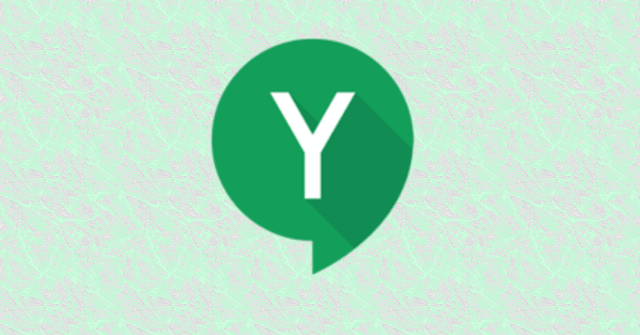

- #Yakyak spellcheck how to#
- #Yakyak spellcheck free#
Practice, exposure, and patience are crucial when learning how to spell correctly in English.

While these rules provide a solid foundation for understanding English spelling, it's essential to remember that there will always be exceptions. Generally, they don't affect the spelling of the base word. Prefixes are added at the beginning of words, while suffixes come at the end.
 For nouns ending in 'Y' preceded by a vowel, simply add an 'S.'Įxample: "toys" (from "toy"), "boys" (from "boy"). For nouns ending in 'Y' preceded by a consonant, change the 'Y' to 'IES.'Įxample: "cities" (from "city"), "ladies" (from "lady"). For nouns ending with 'S,' 'X,' 'Z,' 'SH,' or 'CH,' add 'ES.'Įxample: "buses," "foxes," "quizzes," "dishes," "churches". When forming plurals in English, there are some standard rules to follow: However, there are exceptions to this rule, such as "weird," "seize," and "neither." V. an autoconfirmed-only option (considering most of the constructive edits from IPs are probably spell check or capitalization).
For nouns ending in 'Y' preceded by a vowel, simply add an 'S.'Įxample: "toys" (from "toy"), "boys" (from "boy"). For nouns ending in 'Y' preceded by a consonant, change the 'Y' to 'IES.'Įxample: "cities" (from "city"), "ladies" (from "lady"). For nouns ending with 'S,' 'X,' 'Z,' 'SH,' or 'CH,' add 'ES.'Įxample: "buses," "foxes," "quizzes," "dishes," "churches". When forming plurals in English, there are some standard rules to follow: However, there are exceptions to this rule, such as "weird," "seize," and "neither." V. an autoconfirmed-only option (considering most of the constructive edits from IPs are probably spell check or capitalization). 
"believe" (IE because it doesn't follow C) Spellcheck definition: If you spellcheck something you have written on a computer, you use a special program to.In general, the rule states that when the letters 'I' and 'E' are combined to make a single sound, they should appear as 'IE' unless they follow the letter 'C,' in which case they become 'EI.' There are many unofficial desktop clients that work nicely on Linux distros and.
#Yakyak spellcheck free#
When adding a suffix to a word that ends with a single vowel followed by a single consonant, you typically double the consonant if the suffix begins with a vowel and the stress falls on the last syllable of the base word. YakYak is a free and open source (unofficial) cross-platform desktop client for Google’s Hangouts instant messaging app and it comes right out of the box with a plethora of customization options including native desktop notifications and language translation.
"note": The 'E' is silent but makes the 'O' sound like /ō/. "hate": The 'E' is silent but makes the 'A' sound like /ā/. One common rule in English spelling is the silent 'E.' When a word ends with a vowel followed by a consonant and then an 'E,' the 'E' is often silent but affects the pronunciation of the vowel. "cat" has three letters – one vowel (A) surrounded by two consonants (C and T). Understanding the roles that vowels and consonants play in word formation is crucial for mastering spelling. The English alphabet consists of 26 letters, which are divided into vowels (A, E, I, O, U) and consonants (the remaining 21 letters). You might have got wind that theres a new Yak Yak Game in town Introducing Fart That Tune - the hilariously farty music quiz Guess the daily fart song, earn points and climb the leaderboard. Vowels and Consonants: The Building Blocks This article aims to elucidate the fundamental spelling rules in English, providing examples to help better understand and apply these guidelines. As a result, some rules might seem inconsistent or confusing at first glance. Most of my spelling mistakes are accidental typos, which are particularly annoying, because they seem even easier to correct.English has evolved over time, adopting words from different languages and undergoing numerous transformations. Is it really so hard for developers to understand the keyboard layout, and that when a word incorporates the letter next to it instead of the corresponding one, it should be corrected? As a Spanish and English speaker, my most common typographical errors are, for example, hitting the “ñ” key when I want to put an accent, or the “k” key when I intend to write an “l”, meaning it would be extremely easy to understand by inspecting a few other texts: we all have our own, and will see them come up time and again. For some reason, I often write buisness instead of business (which is interesting, considering I teach in a business school!). Why can’t we have our own spell checker as a personal assistant, which understands which keys are next to which on the keyboard, and therefore most likely to produce the same errors, which in most cases are easy to see, and what’s more in all the languages I usually write in? In short, by now, surely a machine learning algorithm can be developed to quickly scan our previous texts and check the vocabulary we use and the most frequent mistakes we make so as not torment us with incorrect suggestions or red underlining? And yes, I know that I can add terms and specific words to the dictionary, and that I can even configure substitutions on my computer, but nobody in their right mind would waste their time doing so, and besides, it only works for specific programs.








 0 kommentar(er)
0 kommentar(er)
